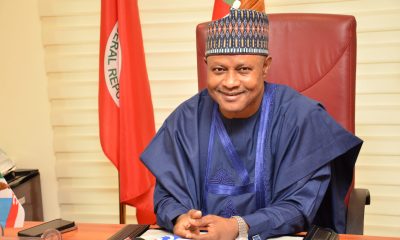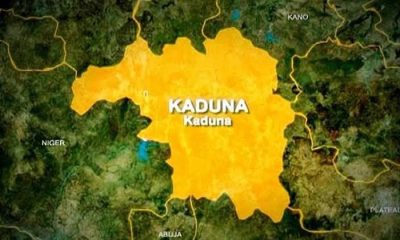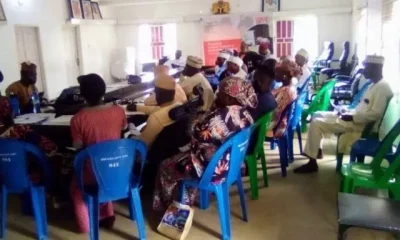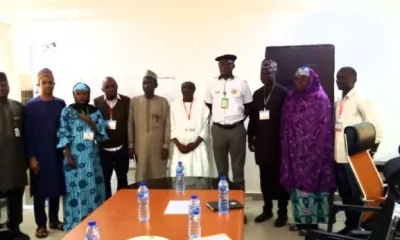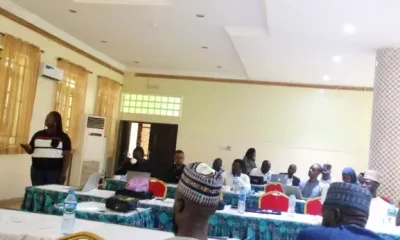News
Kaduna Govt, Google train 5,000 women in tech

The Kaduna State Government and Google on Tuesday announced a partnership to train 5,000 women and girls in data science, artificial intelligence and entrepreneurial application of digital technologies.
Google’s Director for West Africa, Olumide Balogun said in a statement that the partnership was a significant move towards promoting technology inclusivity.
Balogun said that this initiative was part of a broader skills development programme supported by Google.org. which aims to empower 20,000 more women and young people across Nigeria.
He said that the women and girls would be empowered with 21st century skills, positioning the trainees for opportunities in the digital and creative industries.
According to him, the future of technology in Nigeria hinges on tapping into the potential of every individual, irrespective of gender.
Balogun said: ‘’Our collaboration with the Kaduna State Government is a testament to our unwavering belief in the transformative power of women in tech.
‘’Through the support of Google.org, we’re dedicated to fostering a more inclusive digital landscape, ensuring every trained woman becomes a beacon of change in the tech world.”
‘’The collaboration is a clear indication of both parties’ commitment to driving inclusion in the tech industry, ultimately supporting improved economic livelihoods through the digital economy in Nigeria.
According to the Kaduna state Governor, Mr Uba Sani, inclusion in technology is not just about social equity; but about economic progress.
Sani said that by empowering Kaduna State women with digital skills, the state was not only breaking gender barriers but also setting the stage for significant economic growth.
‘’This partnership with Google underscores our commitment to harnessing the vast potential of our women for the socio-economic transformation of Kaduna State and Nigeria at large.
‘’The Kaduna State Government has consistently emphasised the importance of leveraging technology to drive economic growth, central to this vision is the inclusion of women in the tech space.
‘’By providing focused technology training and ensuring accessibility, the state aims to empower this demographic, recognizing their potential to be significant contributors to the digital economy and the broader socio-economic landscape,’’ he said.
The governor said that the programme would be executed by Data Science Nigeria, which will set up Arewa Tech4Ladies.
He said that this initiative was crafted to serve four key semi-urban and rural communities in Kaduna State, offering specialised women-focused learning, mentoring and job placement support facilities.
Headline
Prince Harry visits sick Nigerian soldiers in Kaduna

Prince Harry and his team visited the 44 Nigerian Army Reference Hospital in Kaduna to interact with wounded soldiers who are receiving treatment.
The Duke of Sussex is in Nigeria with his wife to champion the Invictus Games, which Harry founded to aid the rehabilitation of wounded and sick servicemembers and veterans.
Nigeria joined the Invictus Community of Nations in 2022 becoming the first African country to join.
Prince Harry’s visit to Kaduna came 68 years after his late grandmother Queen Elizabeth II visited the state during the time of the late Premier of Northern Region Sir Ahmadu Bello.




News
Senate approves death penalty for drug traffickers
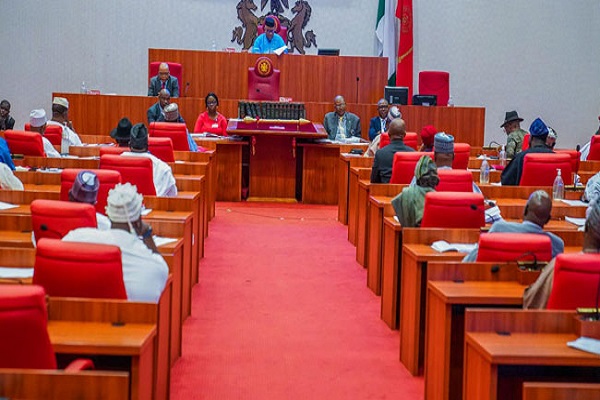
Senate on Thursday, May 9, approved the death penalty for those convicted on the charge of drug trafficking in the country.
The punishment prescribed in the extant NDLEA Act is a maximum sentence of life imprisonment.
The resolution of the Senate followed its consideration of a report of the Committees on Judiciary, Human Rights and Legal Matters and Drugs and Narcotics, National Drug Law Enforcement Agency (NDLEA) Act (Amendment) Bill, 2024.
The Chairman of the Committee on Judiciary, Human Rights & Legal Matters presented the report during plenary, Senator Mohammed Monguno (APC-Borno North).
The bill, which passed its third reading, aims to update the list of dangerous drugs, strengthen the operations of the NDLEA, review penalties, and empower the establishment of laboratories.
Section 11 of the current act prescribes that “any person who, without lawful authority; imports, manufactures, produces, processes, plants or grows the drugs popularly known as cocaine, LSD, heroin or any other similar drugs shall be guilty of an offence and liable on conviction to be sentenced to imprisonment for life” was amended to reflect a stiffer penalty of death.
Although the report did not recommend a death penalty for the offence, during consideration, Senator Ali Ndume moved that the life sentence should be upgraded to the death penalty.
During a clause-by-clause consideration of the Bill, Deputy Senate President Barau Jibrin, who presided over the session, put the amendment on the death penalty to a voice vote and ruled that the “ayes” had it.
But Senator Adams Oshiomhole objected to the ruling, saying that the “nays” had it.
He argued that matters of life and death should not be treated hurriedly, but Barau said it was too late, as he failed to call for division immediately after his ruling.
The bill was subsequently read for the third time and passed by the Senate.
-

 Business5 days ago
Business5 days agoNigeria needs over $2bn to revive Ajaokuta Steel Plant, says Minister
-

 Headline5 days ago
Headline5 days agoSuspend cybersecurity levy– Reps to CBN
-

 Headline3 days ago
Headline3 days agoPrince Harry visits sick Nigerian soldiers in Kaduna
-

 Entertainment3 days ago
Entertainment3 days agoAMVCA Cultural Day: BBNaija’s Neo, Venita win Best Dressed Male, Female
-

 Headline5 days ago
Headline5 days agoTinubu resumes work after foreign trip
-

 News5 days ago
News5 days agoShan George’s money returned to Zenith Bank account
-

 Metro3 days ago
Metro3 days agoEx-Sports Minister laments after hospital neglected him for hours over N80000 deposit



